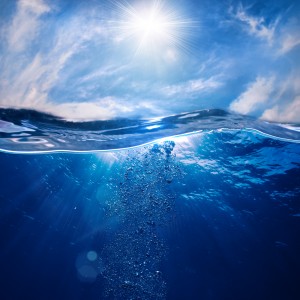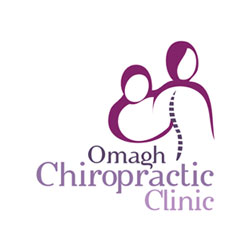Is Your Pain a Cry For Water?
Dehydration is the greatest stress to the body on both a global and a cellular level. Water is essential for life. All processes require a plentiful supply of water for optimal function whether it is industrial or physiological. Without a plentiful supply of water, processes grind to a halt.
The composition of the body is mainly water about 75% with the remaining 25% comprising of proteins, minerals and fat.
 Percentage water composition by body parts:
Percentage water composition by body parts:
- Brain 85%
- Lungs 80%
- Liver 73%
- Skin 71%
- Heart 77%
- Kidneys 80%
- Muscles 73%
- Blood 79%
- Bone 22%
- Teeth 10%
On average the body requires about six to eight glasses that is two to two and a half litre of water a day . Urine should be clear, or straw coloured. If it is yellow you are dehydrated. The intensity of the yellow is a good indicator of the level of dehydration. Thirst is a late sign of dehydration and at this point the body is under stress and consequently is not able to function at optimum levels. It is wise not to wait to be thirsty to drink water, but to hydrate the body in measured amounts over the day. This will be affected by environmental temperature, humidity and the degree to which you lose water as a result of exercise.
It is also important to note that whole foods which were designed for the human body; ripe fruits and fresh vegetables contain a high percentage of water, which helps hydrate the body. Processed foods are generally stripped of their water, along with their nutrients, and causes dehydration due to the high levels of processed salt, sugar and man-made carbohydrates that they contain.
When the body is dehydrated the brain can receive a hunger signal instead of one for thirst. This is because as the human brain, nervous system and body was evolving, the body would get a high percentage of its water from the foods we ate, since fresh water would at times be difficult to come by. Fast forward to present day living where the standard UK diet is highly processed and devoid of water, then these hunger signals contribute to even further dehydration and the added consequence of weight gain and obesity.
Increasing evidence indicates that even mild dehydration plays a role in the development of many diseases and pain syndromes. When you understand just how crucial water is to life this starts to make sense.
When the body is experiencing drought conditions, there is a hierarchy of needs for water. The brain and nervous system get first call on the available supply followed by the vital organs. This would make sense as these organ systems ensure survival of the organism.
At the bottom of the hierarchical pile are the bones, the muscles and connective tissue (comprising our joints) and the skin. If you are not yet aware, the majority of our sensory receptors which include our pain receptors are located in all of these tissues. They allow the brain to monitor any changes to the environment that may represent a potential threat to the organism, so that it can initiate an appropriate response by way of the nervous system to the skeletal muscles, to move away from the threatening stimulus. In a dehydrated state there is an increase in toxic substances which stimulate the pain receptors, and thus lead to acute and chronic pain states, particularly of the muscle and skeletal system.
The intervertebral discs are a major part of the muscle and skeletal system. They act as shock absorbers for the spine and are composed of a fibrous outer layer and a gel nucleus. They require an abundance of water as they support the weight of the body by hydraulic pressure. The gel nucleus is mainly water and supports about 75% of body weight. If the body is dehydrated, and because the disc is low on the hierarchical scale for water, it quickly dries and fails to support body weight adequately. This leads to drying of the discs and the supporting muscles and connective tissue. If this drought state persists the movement pattern of the discs and other joints become faulty, leading to weakness, stiffness and hypersensitivity of the pain receptors. If this turns into a persistent chronic dehydrated state then degenerative changes occur to the discs and joints and physiological changes occur to the muscles and connective tissue.
Connective tissue runs throughout the body and does exactly what it says. It connects the body tissues together. It is comprised of three compounds:
- Collagen fibers that give it structure and strength.
- Elastin which allows for flexibility.
- Ground substance which is a watery substance that nurtures and nourishes the tissue.
If the body is dehydrated the collagen fibers weaken, the elastin is depleted leading to stiffening of the tissue, and the ground substance becomes very gelatinous, compromising it’s nurturing function.
Overall the tissue that holds the body together becomes weakened, more rigid and under nourished. This is a forerunner to chronic degenerative changes and chronic pain syndromes.
There is no substitute for water. Caffeinated drinks are diuretics and make us lose more water than we take in. Sugared drinks reduce the availability of the water between the cells, as when glucose (sugar) is taken up by the cells water follows. Artificially sweetened water poses a serious risk to the body’ as the artificial sweeteners metabolize into compounds that are known to be toxic and can cause neurological damage leading to chronic fatigue states, seizures and brain tumors, to mention but a few.
Water is essential in reducing risk of all illnesses including diabetes, allergies, pain syndromes, inflammatory and degenerative diseases. For a more comprehensive understanding of the therapeutic and physiological effects of water see Dr. F Batmanghelidj book Your Body’s Many Cries For Water.
As a footnote – be aware that too much water is also detrimental to health, as it can lead to hyponatreamia (lowered sodium levels), a condition whereby your cells swell due to an increase in water. This is particularly dangerous if it affects the brain cells. It is therefore important to regulate your sodium intake and a dab of rock salt or sea salt on the tongue can be beneficial. It is important however if you are suffering with high blood pressure and on a low salt diet to discuss this with your medical doctor first.
The best way to monitor your level of hydration is to monitor the color of your urine and then drink water accordingly.




